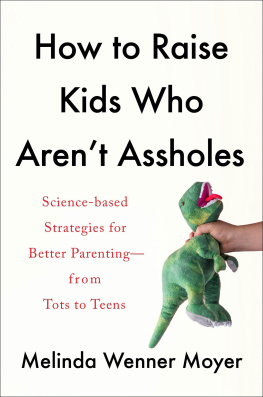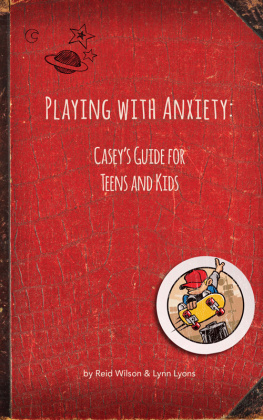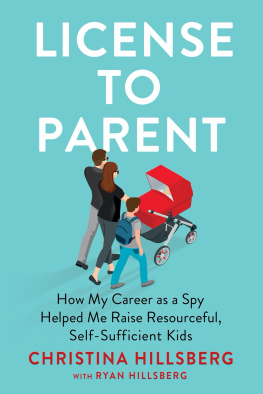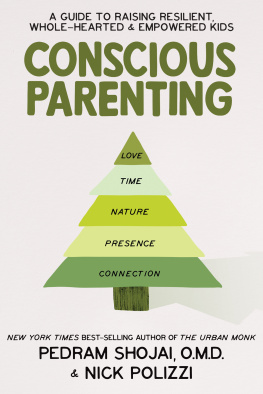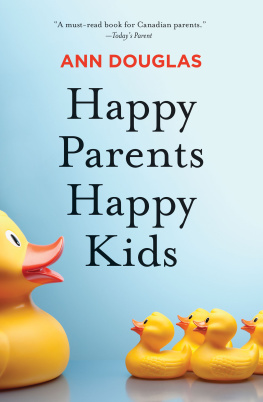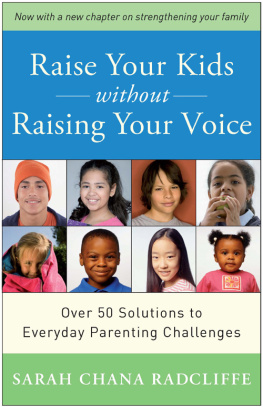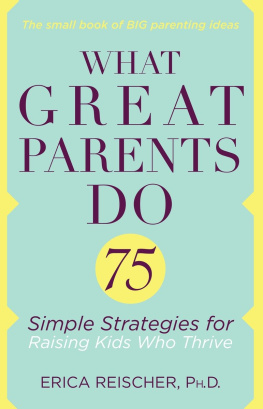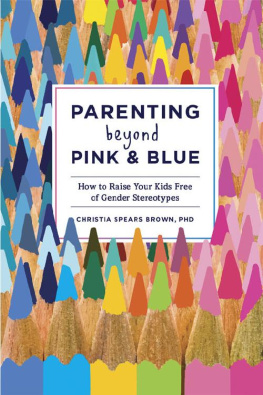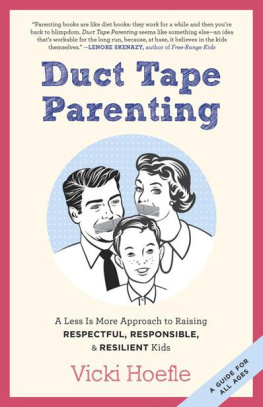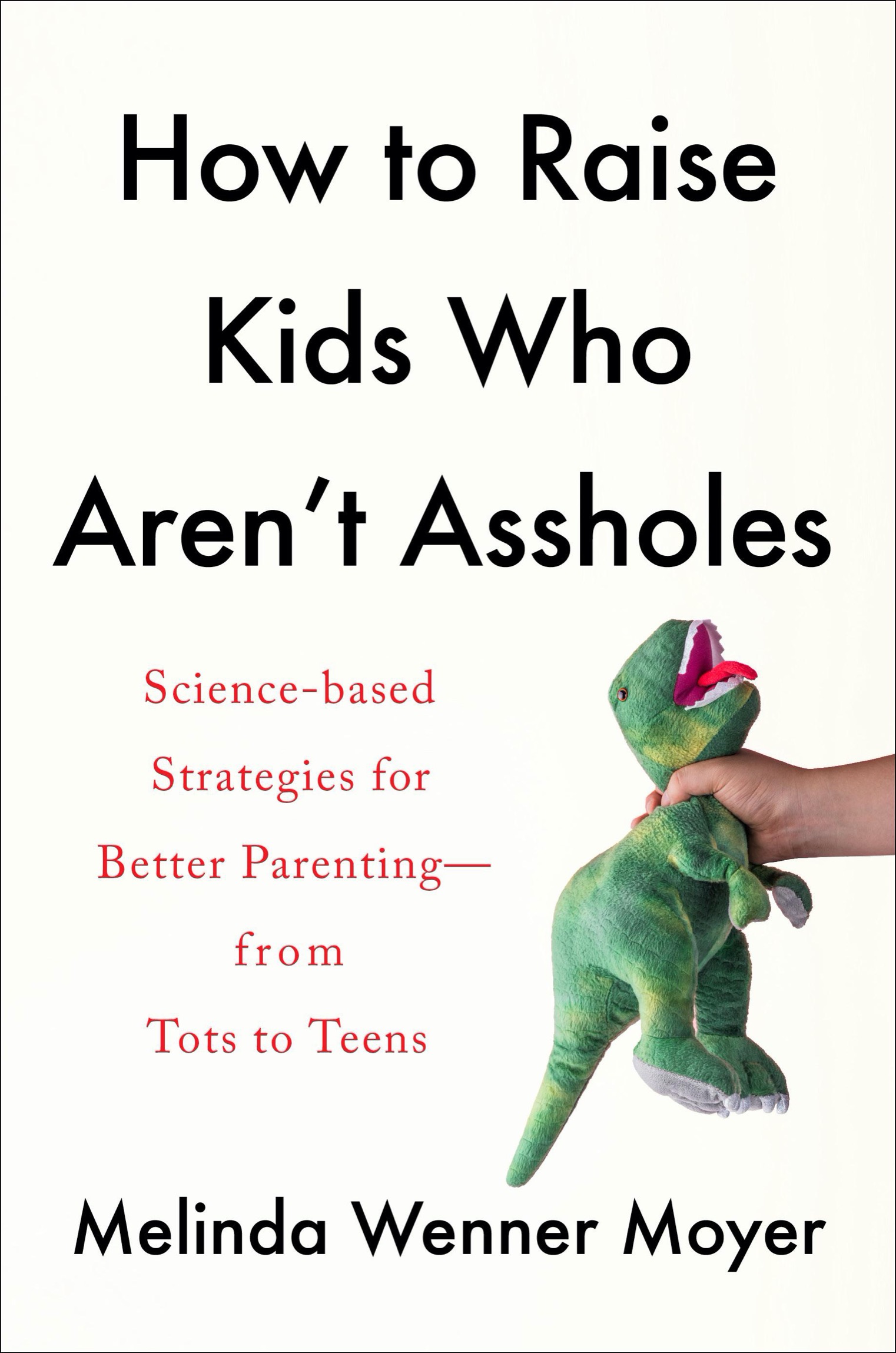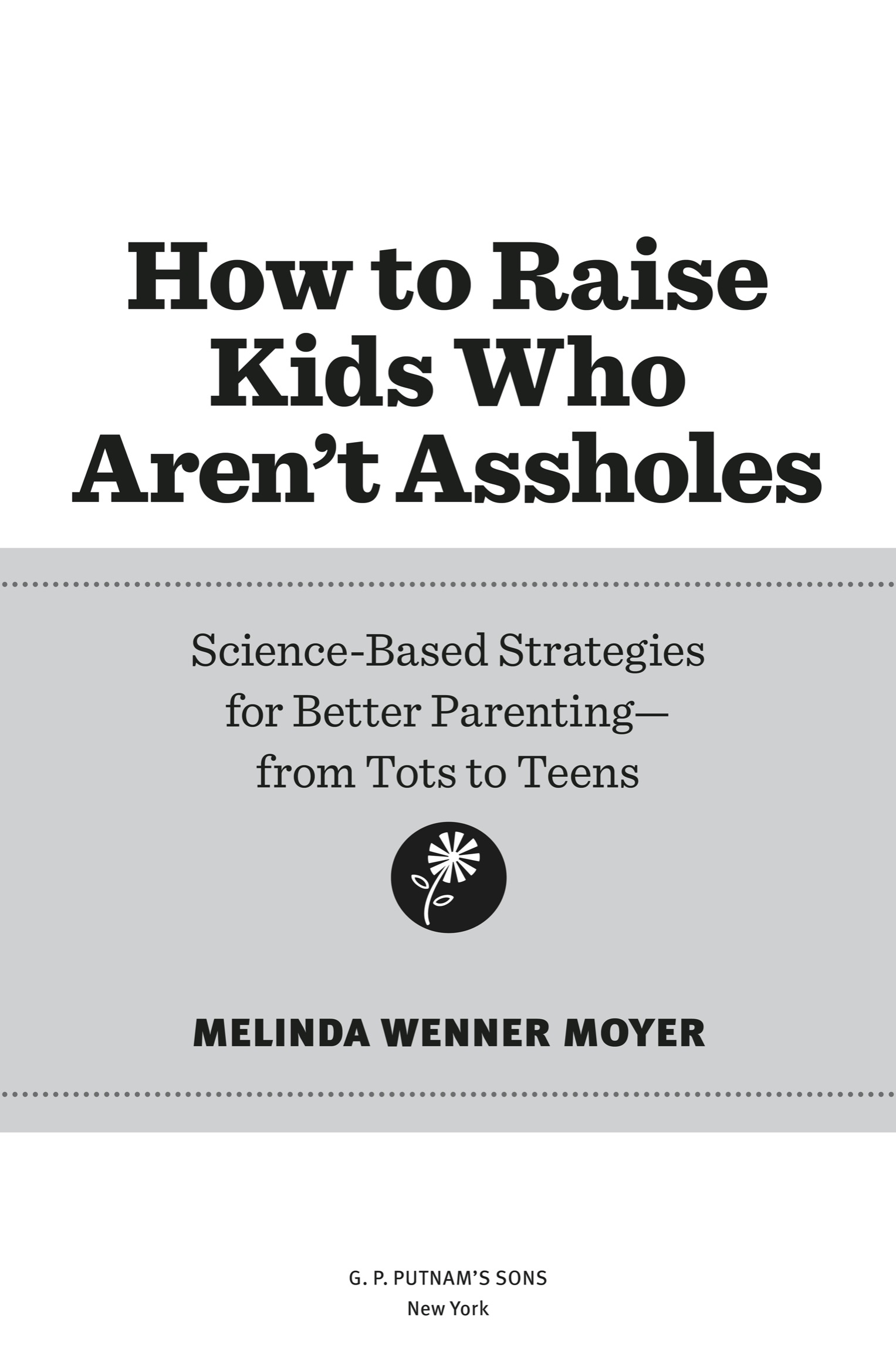G. P. Putnams Sons
Penguin supports copyright. Copyright fuels creativity, encourages diverse voices, promotes free speech, and creates a vibrant culture. Thank you for buying an authorized edition of this book and for complying with copyright laws by not reproducing, scanning, or distributing any part of it in any form without permission. You are supporting writers and allowing Penguin to continue to publish books for every reader.
Some names and identifying characteristics have been changed to protect the privacy of the individuals involved.
Introduction
M y friend Millie still remembers, in cringing, Technicolor detail, the time her then five-year-old son said something blatantly racist. It was three years ago, and she and her husband, who are both white, were on vacation with their kids in Florida. After a week of intense together time, theyd hired a babysitter so they could enjoy a night out. The babysitter happened to be Black.
The next day, Millie asked her son whether he had fun with his babysitter. No, I didnt like her, he replied. When Millie pressed for more info, her son said matter-of-factly, I didnt like her because she had dark skin.
Millie was mortified and had no idea how to respond. She and her husband thought they were raising their kids to be respectful and, you know, not racist, but now? Now they werent so sure. And they had no idea what to do about it.
Most parentsmyself includedwant their kids to grow up to become kindhearted people. In 2020, Parents magazine surveyed more than 1,200 parents around the country about what they wanted most for their kids. In response, 73 percent of mothers and 68 percent of fathers said that kindness was the quality they most wanted to instill in their children, above intelligence, individuality, and work ethic. Similarly, in 2016, Sesame Workshop, the nonprofit organization behind the show Sesame Street, interviewed more than two thousand American parents of children ages three to twelve, as well as five hundred pre-K through sixth grade teachers. Approximately three-quarters of parents and teachers said they felt it is more important for kids to be kind than it is for them to be academically successful.
Yet in that same 2020 Parents magazine survey, 76 percent of mothers and 58 percent of fathers said that kids today are not as kind as kids from years past. The parents in the Sesame Workshop survey felt similarly: 67 percent said most children today are disrespectful, while 43 percent said they didnt think their own kids were very thoughtful. Clearly, despite wanting to foster goodness, many parents arent sure how to do it.
For the past nine years, Ive been using my science journalism background to educate myself about the research on child development and parenting. Ive written a science-based parenting column for Slate and dozens of parenting articles for TheNew York Times. I dig into the published academic research on complicated parenting questions, vet it with experts, and translate it into straightforward parenting adviceadvice that the science truly supports. And Ive often been surprised, if not flat-out shocked, by what the research actually suggests parents do... and how different that professional guidance is from what I had assumed it would be.
Take, for instance, the issue of race, which became a much more pressing issue in many parents minds after the police officerinvolved deaths of George Floyd, Breonna Taylor, and other Black Americans in 2020. Although parents of color typically have regular conversations with their kids about racethey have tomost white parents, my friend Millie included, avoid the topic in a well-meaning attempt to raise their kids to be colorblind. If they dont mention race, these parents think, maybe their kids wont notice it. But the research clearly shows that children (even babies!) do see raceand that, when they arent provided with a framework through which to make sense of it, kids make prejudiced inferences. They see that white people tend to have more power and wealth than people of other races, and then they assume thats because white people are somehow better or smarter.
When I interviewed primary school educator Naomi OBrien, the coauthor of a series of books for parents about race, she explained that she regularly sees her white students saying and doing racist things, such as announcing they wont play with a particular peer because of his dirty skinand that their parents are often oblivious to those judgments. Making matters worse, when white kids try to talk to their parents about race, OBrien said, Theyre hushed and theyre shushed and told not to speak about it, and they just internalize it as talking about color is bad, having color is bad. The truth isand the research clearly showsthat white parents need to talk to their kids about race in explicit ways to prevent them from making racist assumptions.
Parents often unwittingly fuel sexist beliefs, too, by giving different messages to girls than to boysmessages that reflect our grown-up misogynistic reality. Like that appearance matters more for girls than for boys, and that boys arent allowed to feel sad or afraid. And when we follow the age-old advice to let our kids work out sibling fights by themselves, we often make sibling rivalry worse and cause our kids to think that bullying and coercion are the best ways to resolve conflict.
Sometimes, of course, research confirms our deeply held parenting instincts, but other times it directly contradicts it in fascinating, thought-provoking wayswhich is one of the reasons I decided to write this book. I wanted to share all the surprising science Ive uncovered about raising kind kids.
SO MANY ASSHOLES
I wrote this book for another big reason, too. I believe our work as parents today is more crucial than ever. The world has been sending dangerous messages to our kids about how they should behave and treat one anothermessages that we desperately need to challenge and counteract.
Before I explain, I first want to say that I think kids are sometimes supposed to act like assholes. They have to challenge boundaries in order to understand them, and they have to make social bloopers in order to learn from them. Ive come to think of mortifying kid moments (and we have a lot of those in our house) as teaching opportunitiesor, better yet, as wake-up calls that illustrate what we need to be working on as a family.
Unfortunately, right now, parents are being bombarded with wake-up calls, because people everywhere have been behaving pretty badly. In the fall of 2018, K12 teachers and staff reported to the Southern Poverty Law Center that they had observed more than 3,200 hate-related incidents in their schools over the past few months. In Monroe, Louisiana, for instance, a white student was arrested for putting a noose around a Black classmates neck.

